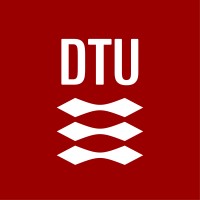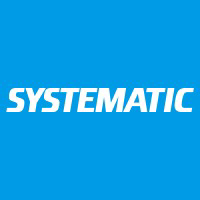We are looking for a development engineer who works closely with scientific experts to develop, maintain, support and test our internally developed aeroelastic toolchain HAWC2. This toolchain is recognized as a reference tool within both industrial, certification and academic contexts. We distribute HAWC2 both on commercial and academic (free of charge) terms and you will be in close contact with all these different users.
The job
Your primary area of responsibility is the development and support of DTU’s aeroelastic toolchain HAWC2. This toolchain consists of various components written mainly in Fortran, Python and Rust. We manage all our codes on Gitlab and have many CI pipelines that are responsible for building and testing all the different components in a coherent and structured manner. Your work will focus on the following elements:
- Contribute to the development of the aerorelastic simulation tool HAWC2.
- Improve and develop pre- and post-processing tools (some of which are open source) that are part of the HAWC2 toolchain, and which have both industrial and academic users.
- Implement, streamline and maintain Gitlab CI workflows for automated building, testing and distribution of all components of the HAWC2 toolchain.
- Support the HAWC2 technical sales and license activities.
You will be employed in the section Turbine Response and Validation (RSP) which consists of both scientists and development engineers and is part of DTU Wind and Energy Systems. Experienced colleagues within the team will support you and make sure we tailor the training and onboarding activities that are right for you. The successful candidate will be expected to collaborate with other software development staff within the Wind and Energy Systems Department, in various project across the organisation.
You will be a key person in keeping all this infrastructure running smoothly. HAWC2 is used by our industrial partners, in our own publicly funded research projects, and in teaching the next generation of engineers. You will have the opportunity to actively engage with these projects and contribute towards deliverables and results. In doing so, you’ll improve your aeroelastic modelling and analysis engineering skills through interactions with experienced colleagues.
Our expectations of you
We expect the following general qualifications from you:
- M.sc. in Mechanical Engineering, Wind Energy or a physics-based application field.
- Team player that is able to keep the overview of a complex machine with many moving parts and different kinds of users.
- Eye for technical details and is driven to deliver high quality results.
Because you will be working primarily in a software development application environment, we expect several of the following competencies:
- Experience with modern software development practices and tools (git, gitlab, issue tracking, continuous integration (building/testing/deploying), etc).
- Experience with using Python and packages often used in a scientific context (e.g. numpy, pandas, xarray, etc).
- You have worked with FORTRAN (or other compiled language)
- Having worked with Rust is considered a plus.
- Comfortable to work in both Windows and Linux environments, and know how to use containers such as Docker, Apptainer, Singularity, or equivalent.
- Python/Rust based GUI development and 3D Visualisations.
- Shell scripting, such as PowerShell and bash.
You will be working in a multi-national team of multi-disciplinary experts which means that you will need to communicate in English, verbal and written. Furthermore, you will work as part of a large team, where your individual and independent contribution and results on time is a key contribution. Lastly, you should be able to communicate well with different stakeholders and have an eye for our stakeholders different needs and perspectives.
What we offer in return
We offer an interesting and challenging job in an international atmosphere with the focus on research, teaching, innovation and scientific advice for the benefit of the surrounding community. We place emphasis on a high level of professionalism among our staff, so skills development is an integral part of our organization. We offer a great flexibility in the position. In the area of technical and natural sciences, DTU is one of the leading research and education institutions in Europe.
Salary and appointment terms
The appointment will be based on the collective agreement with the Danish Confederation of Professional Associations (AC).
Application and contact
Please submit your online application no later than 1 September 2025. Open the “Apply now” link, fill out the form and attach your motivated application, CV and exam certificates.
If you would like additional information about the position, please contact Head of Section, David Verelst on +45 46 77 40 26 or [email protected].
Applications received after the deadline will not be considered.
All interested candidates irrespective of age, gender, disability, race, religion or ethnic background are encouraged to apply. As DTU works with research in critical technology, which is subject to special rules for security and export control, open-source background checks may be conducted on qualified candidates for the position.
Technology for people
DTU develops technology for people. With our international elite research and study programmes, we are helping to create a better world and to solve the global challenges formulated in the UN’s 17 Sustainable Development Goals. Hans Christian Ørsted founded DTU in 1829 with a clear mission to develop and create value using science and engineering to benefit society. That mission lives on today. DTU has 13,500 students and 6,000 employees. We work in an international atmosphere and have an inclusive, evolving, and informal working environment. DTU has campuses in all parts of Denmark and in Greenland, and we collaborate with the best universities around the world.






